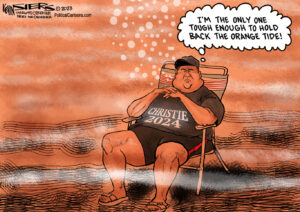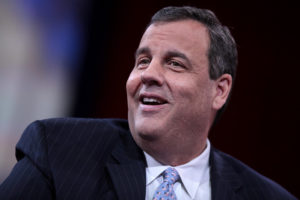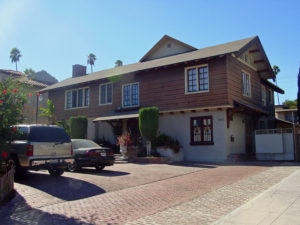U.S. Gave $315 Million to Supplier of Mines Accused of Using Slave Labor
The government helped finance an industrial chain reported to be involved in human rights violations and environmental destruction in Africa.
Over the past decade, the U.S. supplied an industrial chain said to involve slave labor, human rights violations and environmental destruction in Africa with $315 million in taxpayer-supported credit.
The Guardian reports:
Between 2007 and 2015, the US Export-Import Bank provided 48 insurance policies to the New Jersey-headquartered Connell Company to pursue deals with at least 17 mining companies in seven sub-Saharan countries. These included a $20,000 policy to supply equipment to the Bisha copper mine in Eritrea, which is being investigated by a Canadian court amid accusations of slavery, according to an investigation of the bank by the Guardian and the Columbia University Graduate School of Journalism’s Energy and Environment Reporting Project.
The bank provides US exporters with financing – in the form of loans, guarantees and insurance policies – to sell goods and services overseas. Bank officials say they create US jobs and fill a financing gap by allowing companies to access funding when private lenders will not.
But Nevsun Resources, the Canadian mining company that controls Bisha, faces a lawsuit in which 30 plaintiffs allege that the mine engaged two Eritrean state-run contractors and the army to force hundreds of military conscripts to work there under abhorrent conditions.
“The financing that Connell is getting is quite significant,” said Doug Norlen, director of economic policy for Friends of the Earth US. “Whether it’s loans or insurance, the same obligations exist to carry out human rights due diligence. Some of these projects are associated with some pretty serious human rights abuses.”
The bank also insured export deals between Connell and seven mining companies in the Katanga region of the Democratic Republic of Congo, where the proximity of mines to villages means thousands of people are exposed to fumes, dust, noise and effluent water, says the Centre for Research on Multinational Corporations.
The Guardian adds that a lack of oversight over the funds’ purposes “means the US is potentially financing corrupt and dangerous projects across the globe.”
Doug Norlen, director of economic policy for Friends of the Earth U.S., told The Guardian that the lack of oversight violates the United Nations’ Guiding Principles on Business and Human Rights. Those rules say that, prior to financing, export credit agencies are responsible for investigating projects that could involve human rights abuses.
Instead, the bank takes guidance from the Organisation for Economic Cooperation and Development, whose standards are weaker than the UN’s.
The Guardian adds:
Another Connell client in the region that has received scrutiny is Ambatovy, a cobalt and nickel mine in Madagascar operated by the Toronto-based Sherritt International Corporation. Between 2010 and 2012, Connell was provided with about $500,000 worth of insurance policies to supply goods to the mine. The Ambatovy development includes an ore deposit that covers 1,600 hectares (almost 4,000 acres, or a space roughly five times the size of New York’s Central Park), a 220km (137-mile) pipeline (equal to the distance between Los Angeles to San Diego) and a processing plant the size of 250 football fields.
Although Ambatovy has an environmental management program, biologists say this gigantic project has scarred an ecologically unique country whose lush forests are home to hundreds of native animals, including about 100 species of lemurs, as well as the cat-like fossa.
“The Ambatovy mine has destroyed a lot of primary rainforest habitat in Madagascar,” said Chris Raxworthy, a curator-in-charge at the American Museum of Natural History, who has studied reptiles and amphibians in the African island country since 1985. “At the moment, it is not clear what positive offsets the mine development has provided for Madagascar’s biodiversity.”
Read more here.
—Posted by Alexander Reed Kelly
Independent journalism is under threat and overshadowed by heavily funded mainstream media.
You can help level the playing field. Become a member.
Your tax-deductible contribution keeps us digging beneath the headlines to give you thought-provoking, investigative reporting and analysis that unearths what's really happening- without compromise.
Give today to support our courageous, independent journalists.








You need to be a supporter to comment.
There are currently no responses to this article.
Be the first to respond.